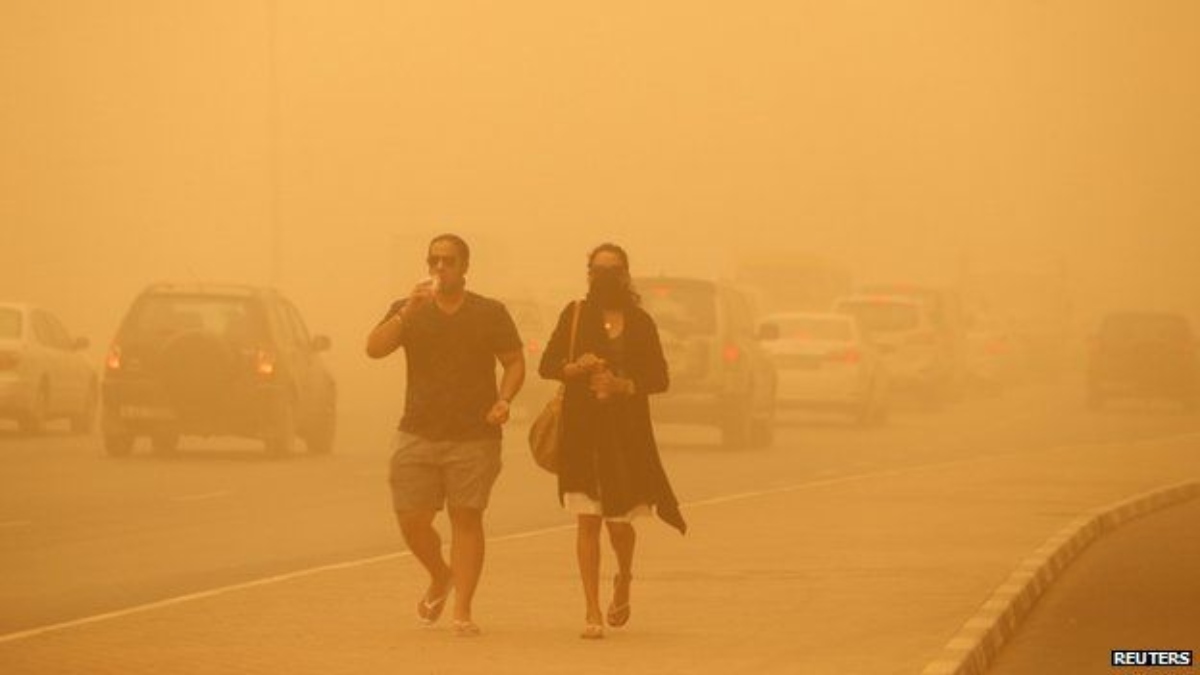The UAE is set to implement an early warning system for sand and dust storms (SDS). This initiative, announced by Dr. Nada Al Marzouqi, the Director of the Department of Public Health and Prevention at the Ministry of Health and Prevention, aims to safeguard residents, particularly those with respiratory conditions.
Speaking on the sidelines of the ongoing COP28 at Expo City Dubai, Dr. Al Marzouqi emphasized that this system is crucial for individuals with pulmonary and cardiovascular diseases. The impact-based warning system will enable them to take immediate preventive action upon receiving an alert.
The urgency of this system is underscored by a recent spike in respiratory problems in the UAE, despite the country having one of the lowest rates of respiratory diseases in the region. This surge has prompted collaboration with health partners, the National Centre of Meteorology (NCM), and the National Emergency Crisis and Disaster Management Authority to expedite the implementation of the SDS early warning system.
The system will provide advance notifications to those vulnerable to dust exposure, which can trigger acute asthma attacks and worsen chronic obstructive pulmonary and cardiovascular conditions. Dr. Al Marzouqi highlighted that timely warnings allow for effective preventive measures.
Linking health issues to the broader climate crisis, Dr. Al Marzouqi drew attention to the global increase in extreme weather events like heatwaves, wildfires, floods, and hurricanes, all impacting community health. “Health is the human face of climate change,” she stated, stressing the need to place health at the forefront of climate change discussions.
In line with these concerns, the ‘COP28 UAE Declaration on Climate and Health’ was signed by 123 countries on December 2. The declaration, praised by Dr. Al Marzouqi, focuses on building climate-resilient health systems, reducing carbon emissions, and increasing funding for climate and health solutions.






